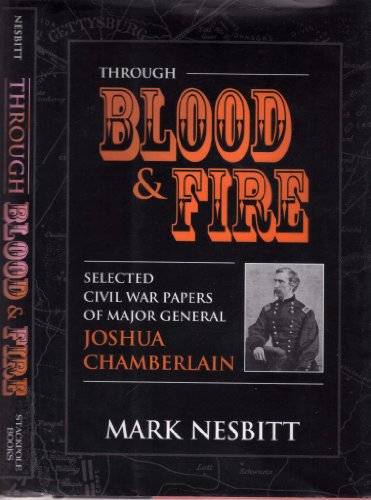Includes all of Chamberlain's known wartime lettersShows his transformation from college professor to major generalOriginal writings placed into context by historian Mark NesbittIn July 1862 Joshua Chamberlain, a family man and respected professor at Bowdoin College in Maine, joined the fight to preserve the Union. His wartime service was exemplary; he is perhaps best remembered for his outstanding leadership at Gettysburg. At all times, however, he fought bravely and well, even at Petersburg in 1864 where he received the wound that was to torment him until his death in 1914.
Throughout his time in the field, Chamberlain wrote letters of recommendation to his superiors, letters of condolence to the families of soldiers killed while under his command, and letters to his family at home. All are well written, revealing the professor's educated background and elegant prose. Nesbitt's notes set the scene, place Chamberlain's writings within the larger context of the war, and make clear the General's sterling character and his sacrifices for the country he loved.
There is no dearth of material on the remarkable citizen-soldier who led the Twentieth Maine at Gettysburg and received the final surrender of the Army of Northern Virginia at Appomattox. Yet this selection of Chamberlain's correspondence is a valuable addition to the available resources. The letters cover Chamberlain's transformation from scholar to soldier, his reaction to Gettysburg, the ordeal of his 1864 wound (which remained painful and debilitating to the end of his life), and his farewell to arms. They shed light on his political opinions, his connections among Maine's elite and with the common soldiers under his command, his troubled relations with his family, and much else. They leave us strongly impressed that Chamberlain was more human but no less remarkable than he has heretofore been presented as being. Recommended for active Civil War colletions. Roland Green
Historian Nesbitt (Saber and Scapegoat, Stackpole, 1994) skillfully brings together the correspondence of Joshua Chamberlain during the years of the Civil War. In a transitional narrative provided by the editor that allows the letters to flow into a superb text, the book begins with Chamberlain's petition for service with the Maine units heading off to war. While concentrating on the war years, Nesbitt includes not only Chamberlain's heroic actions on Little Round Top during the Battle of Gettysburg but also his other important battles at Fredericksburg and his near-fatal charge at Petersburg. Selected to oversee the laying down of Confederate arms at Appomattox, Chamberlain declared, "It is by miracles we have lived to see this day, any of us standing here." His military service having now come full circle, he reflected on the body of men that was the Union army and stated, "This army will live, and live on, so long as soul shall answer soul." Well organized with a balance of text, letters, and narrative, this work is recommended for all libraries.?Barbara A. Zaborowski, Cambria Cty. Lib., Johnstown, Pa.
Copyright 1996 Reed Business Information, Inc.
